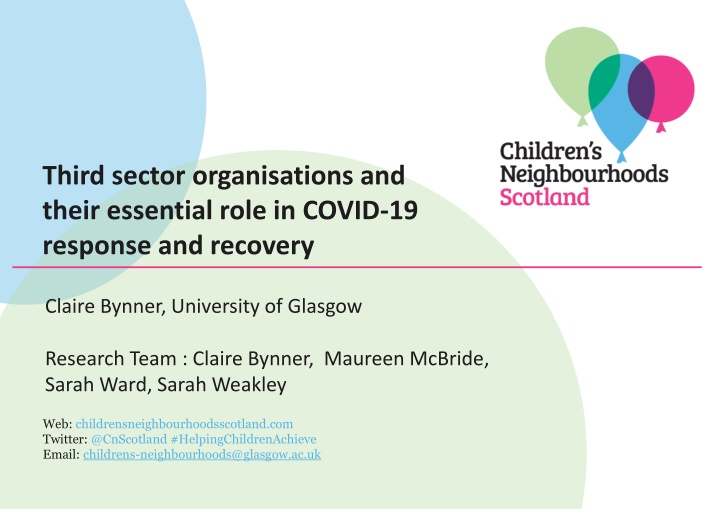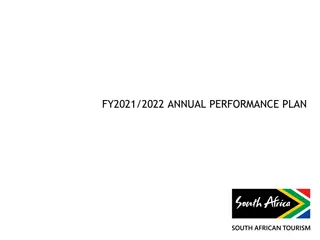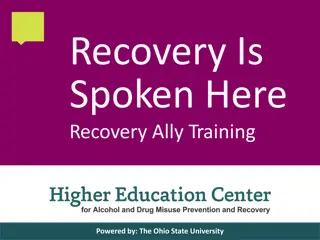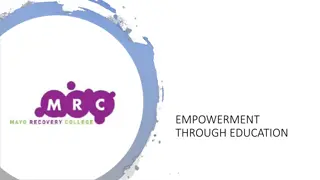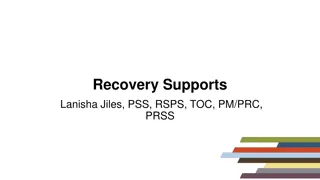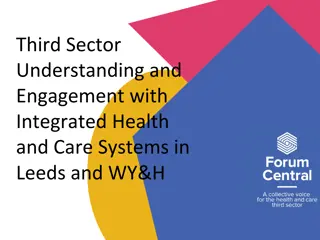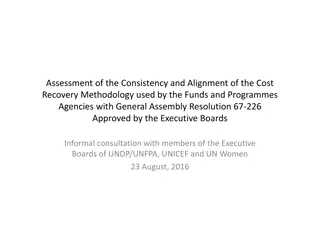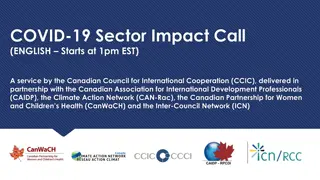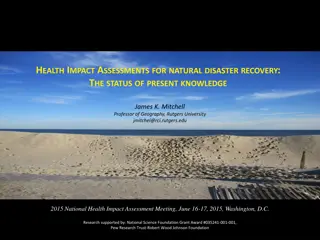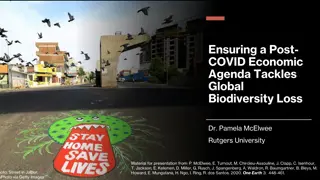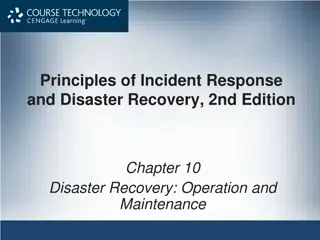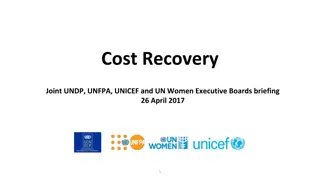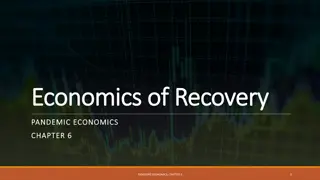Essential Role of Third Sector Organizations in COVID-19 Response and Recovery
This research study by Claire Bynner and the University of Glasgow team focuses on the impact of COVID-19 on families, children, and young people, as well as the response of local third sector organizations in Scotland. The findings highlight the remarkable mobilization of the third sector during the pandemic, particularly in providing food support to vulnerable populations. Various organizations in Glasgow played a crucial role in delivering meals and food parcels to those in need, showcasing the significant contributions of the third sector in the community's COVID-19 response efforts.
Download Presentation

Please find below an Image/Link to download the presentation.
The content on the website is provided AS IS for your information and personal use only. It may not be sold, licensed, or shared on other websites without obtaining consent from the author.If you encounter any issues during the download, it is possible that the publisher has removed the file from their server.
You are allowed to download the files provided on this website for personal or commercial use, subject to the condition that they are used lawfully. All files are the property of their respective owners.
The content on the website is provided AS IS for your information and personal use only. It may not be sold, licensed, or shared on other websites without obtaining consent from the author.
E N D
Presentation Transcript
Third sector organisations and their essential role in COVID-19 response and recovery Claire Bynner, University of Glasgow Research Team : Claire Bynner, Maureen McBride, Sarah Ward, Sarah Weakley Web: childrensneighbourhoodsscotland.com Twitter: @CnScotland #HelpingChildrenAchieve Email: childrens-neighbourhoods@glasgow.ac.uk
Background and Context The purpose of the research was to examine: the impact of COVID-19 on families, children and young people local services response, collaboration, and future priorities Methodological notes 2 Scottish local authorities April to Sept 2020, 25 qualitative interviews with a diverse range of service providers - education, family support, youth work etc 14 interviews were conducted with local third sector organisations and frontline professionals 11 interviews were conducted with managers working at a strategic level Web: childrensneighbourhoodsscotland.com Twitter: @CnScotland #HelpingChildrenAchieve Email: childrens-neighbourhoods@glasgow.ac.uk
Findings 1: Findings 1: First responders First responders and primary engagers primary engagers and The pandemic and lockdown resulted in a remarkable third sector mobilisation: I think the response of the community groups in third sector was incredible. I ve never seen anything like it. It was absolutely phenomenal (Health improvement officer, South Lanarkshire) Web: childrensneighbourhoodsscotland.com Twitter: @CnScotland #HelpingChildrenAchieve Email: childrens-neighbourhoods@glasgow.ac.uk
The scale of the food response by organisations in Glasgow during the COVID-19 pandemic Organisation Partick Thistle Trust Brunswick Centre PEEK Well Fed Scotland Sikh food bank Glasgow's Golden Generation Drumchapel food bank Scale of response 25,000 meals 7,500 emergency food parcels, 18,000 meals, 2000 lunches 200,000 meals by end of July 200,000 meals by end of June 80,000 meals 6,500 parcels to older people Food parcels (enough food for a week) to 4,200 people, 2000 hot meals 1 million meals by end of July (through 80 partner organisations) 100 tonnes of food a week - equivalent to 250,000 meals (supplying a wide range of other organisations) FARE Scotland Fare Share Glasgow Source: GCVS In rural areas in South Lanarkshire, the stigma of poverty meant that food bank deliveries were not always welcome
Findings 2: Key workers in a crisis Findings 2: Key workers in a crisis Social isolation and fear - Isolation, you know, the isolation of it. Poverty, you know that whole poverty. Feeling trapped [ ] and now we are adding being trapped in a tenement building, in a flat, scared (Theresa, third sector, Glasgow South) With the loss of face-face contact from statutory key workers, trusting relationships between third sector workers and families were critical to identifying issues and providing support
Findings 3 Grants allow the flexibility to Findings 3 Grants allow the flexibility to respond quickly respond quickly Grant funded organisations were supported by their funders to re- purpose their grants to meet immediate needs Organisations that are reliant upon trading or fundraising have seen their incomes drop dramatically. So, we are seeing almost a split in the sector in terms of how organisations are able to respond (John, third sector, Glasgow city)
Conclusion / Implications Conclusion / Implications Conclusion the role of local third sector organisations has been mainly supplementary - fulfilling the demand for public goods left unsatisfied by government (Young 2000) the extent to which the relationship is complementary varies across local authorities Recommendations 1. Recognise the contribution of the sector - involve the wider third sector in coordinated emergency response planning, and re-allocate mainstream public funding to sustain local organisations 2. Funding - extend flexibility in funding criteria and speed of processing as a long-term approach to grant funding 3. Strengthencommunity resilience (Seaman et al 2014; Harkins 2020), prevent new dependencies and sustain local agency and empowerment . See also https://policyscotand.gla.ac.uk/tag/resilience
